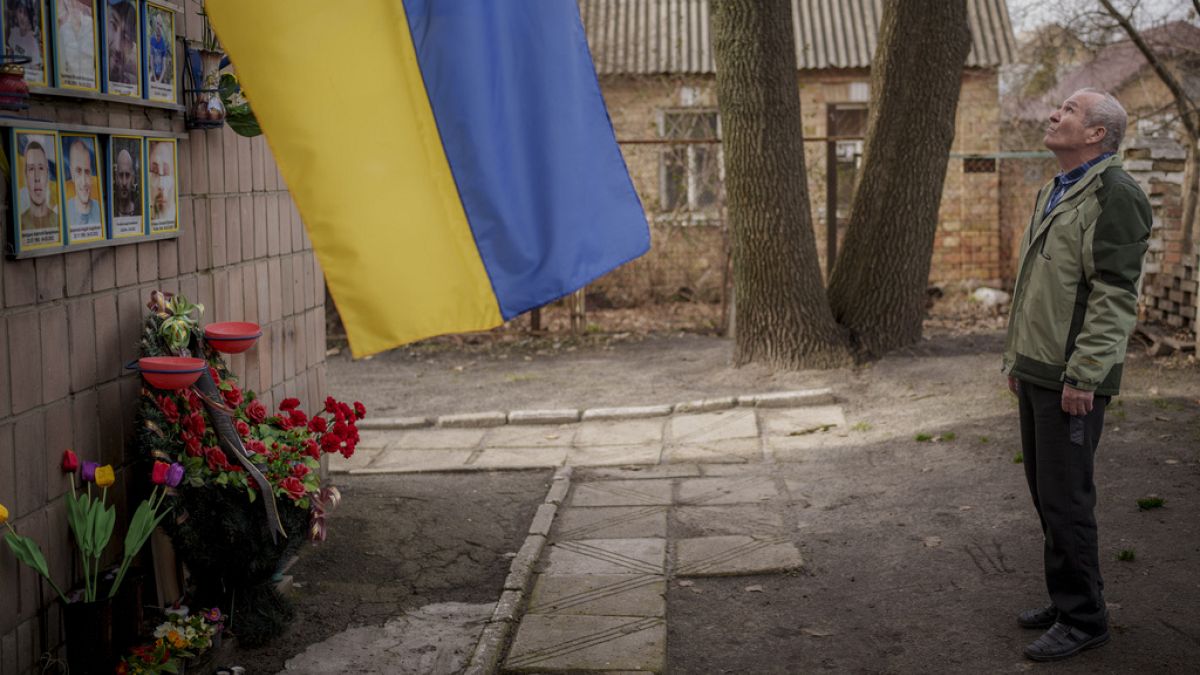Over 1,000 people were killed by Russian forces in the town before it was liberated on 31st March 2022.
On the 25th of February 2025 Mykhayilyna Skoryk-Shkarivska- then the deputy mayor of Bucha-was due for a monthly budget meeting of the local council.
But by 7am councillors assembled to discuss the terrifying news overnight Russia had started its invasion of Ukraine – what Putin was declaring was a ‘Special Operation.’
By the 27th the normally quiet, residential city of Bucha became the epicentre of Russia’s full territorial conquest of Ukraine, with its initial plan overthrow and occupy the capital, Kyiv.
Bucha and close-by neighbourhood of Irpin presented to the world the first sight of the sheer brutality of the Russian invasion. The worst crimes against humanity – mass rape, mass murder, torture and summary execution were all employed as tactics against civilians.
In the intervening days, some residents fled across the main bridge across the Irpin river; others hid in basements and garages – many for several weeks; praying they wouldn’t be detected.
Countless others weren’t so lucky.
And it was only after Ukrainian defence repelled Russians and liberated Bucha in March 2022 that the grisly fate of hundreds of civilians became apparent.
Around 509 people were murdered. Dozens and dozens of bodies – hands tied with cable ties and blindfolded were strewn across the streets and parks of Bucha.
Women reported being raped and gang raped by Russian soldiers.
‘The scale of massacre we saw only after - when we started to collect killed people and had to exhume bodies’, Mykhayilyna told Euronews.
‘People buried their loved ones in the local town squares, and in our beautiful parks’ and that was very shocking.
As deputy mayor, one of the responsibilities Mykhayilyna took upon herself was to try to pick up the pieces of the horror visited upon Bucha and Irpin.
She recalls painfully how difficult it was to separate and identify those who were murdered and ensure their families could identify them and give them a burial.
But she says, the ‘most awful part was to negotiate with the Mums’, she says. ‘It was the worst experience of my life’. ‘To bury a killed person you need to identify them personally, she explains - and somebody has to help the mum identify her dead child in order to bury them.
Countless photos of decaying remains of dead fathers, sons, mothers, children are now formal documentation for future cases against Russian soldiers, commanders at the International Criminal Court in the Hague.
Two years on, as the people of Bucha attempt to piece together their lives – with burned out buildings and the bombed out cultural centre a daily reminder of the horrors which unfolded Mykhayilyna Skoryk-Shkarivska issues a warning to anyone who thinks they’re safe.
‘We never saw this in Ukraine before – not in Crimea or the Donbass – this type of cruelty’; ‘suddenly Bucha became a museum of war crimes’ – Putin needs to be stopped otherwise other parts of Europe are next.
